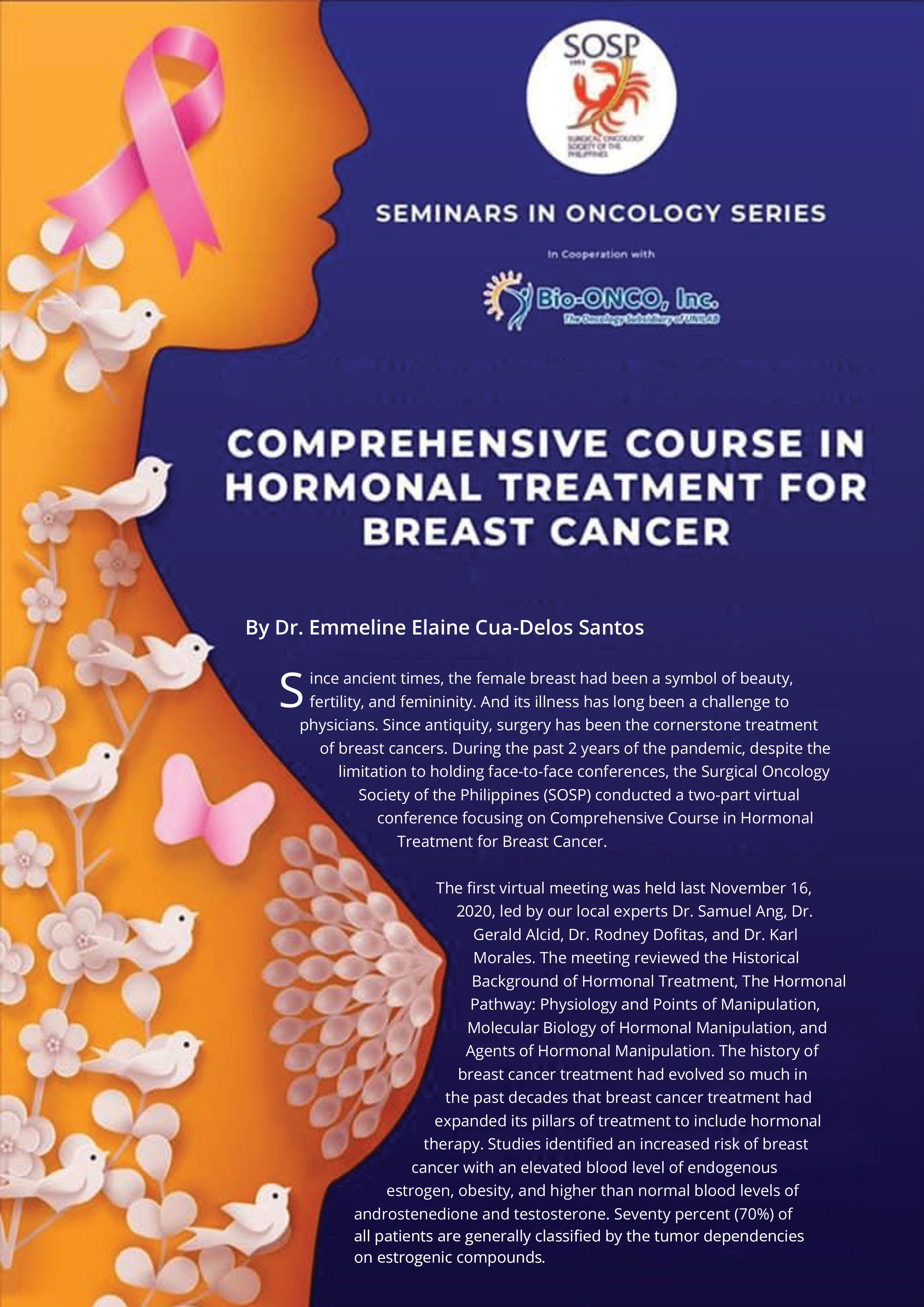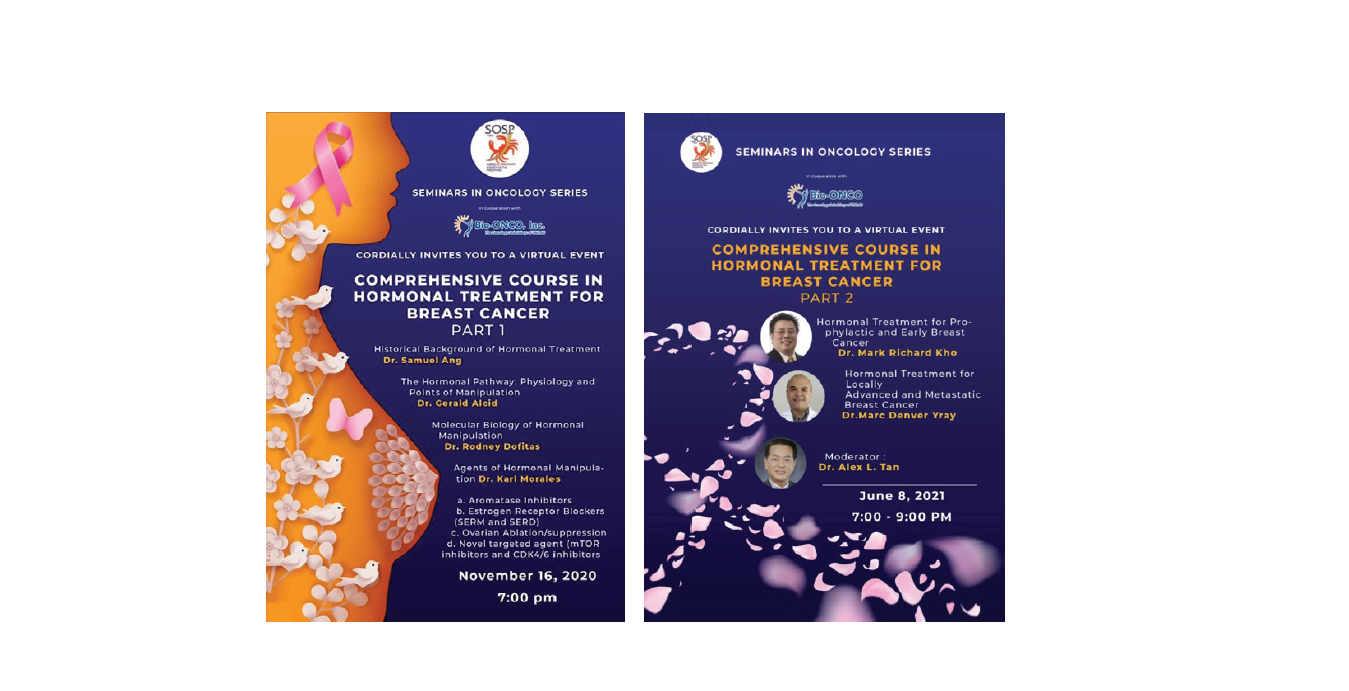By: Emmeline Elaine Cua-Delos Santos, MD

These estrogen-positive tumors are dependent on the estrogen receptor and its cognate ligand, estrogen, for their growth, survival, and progression. Thus, hormonal treatment is a systemic treatment and is recommended for hormone receptor-positive tumors. The different signaling pathways lead to estrogen proliferation and thus these receptor site modulations can provide suppression and treatment. Current evidence on hormonal treatment has shown improved survival both in the adjuvant setting as well as metastatic setting.

The second virtual meeting was held last June 8, 2022, and centered on Hormonal Treatment for Prophylactic and Early Breast Cancer as well as Locally Advanced and Metastatic Breast Cancer. The meeting was led by Dr. Mark Richard Kho and Dr. Marc Denver Yray. Current evidence showed that Tamoxifen, taken for 5 years, reduced the risk of developing invasive breast cancer by 50% in postmenopausal women who were at increased risk. For decades, hormonal therapy had been the cornerstone in the treatment of hormone receptor-positive early-stage breast cancer. In locally advanced breast cancer, neoadjuvant endocrine therapy represents a feasible and effective treatment option especially in ER+ HER2-negative post-menopausal patients, with aromatase inhibitors administered preoperatively for 3-6 months being the gold standard. A promising therapeutic strategy is represented by the combination of an aromatase inhibitor and a target agent such as a CDK4/6 inhibitor or PI3K-AKT-mTOR pathway inhibitor, although further studies are required to confirm preliminary data. In the metastatic setting, hormonal treatment had been considered the standard initial treatment for HER2-negative metastatic breast cancer that is also hormone receptor-positive.
The pandemic years had posed new challenges in delivering the treatments for our breast cancer patients. New exciting data is emerging on the benefit of hormonal treatment, especially for our patients who were not able to access treatment during the height of the pandemic. Our resilience, as physicians and that of our patients, during the pandemic will surely be an inspiration for us to pursue our learning in the fast-evolving treatment of breast cancer.


